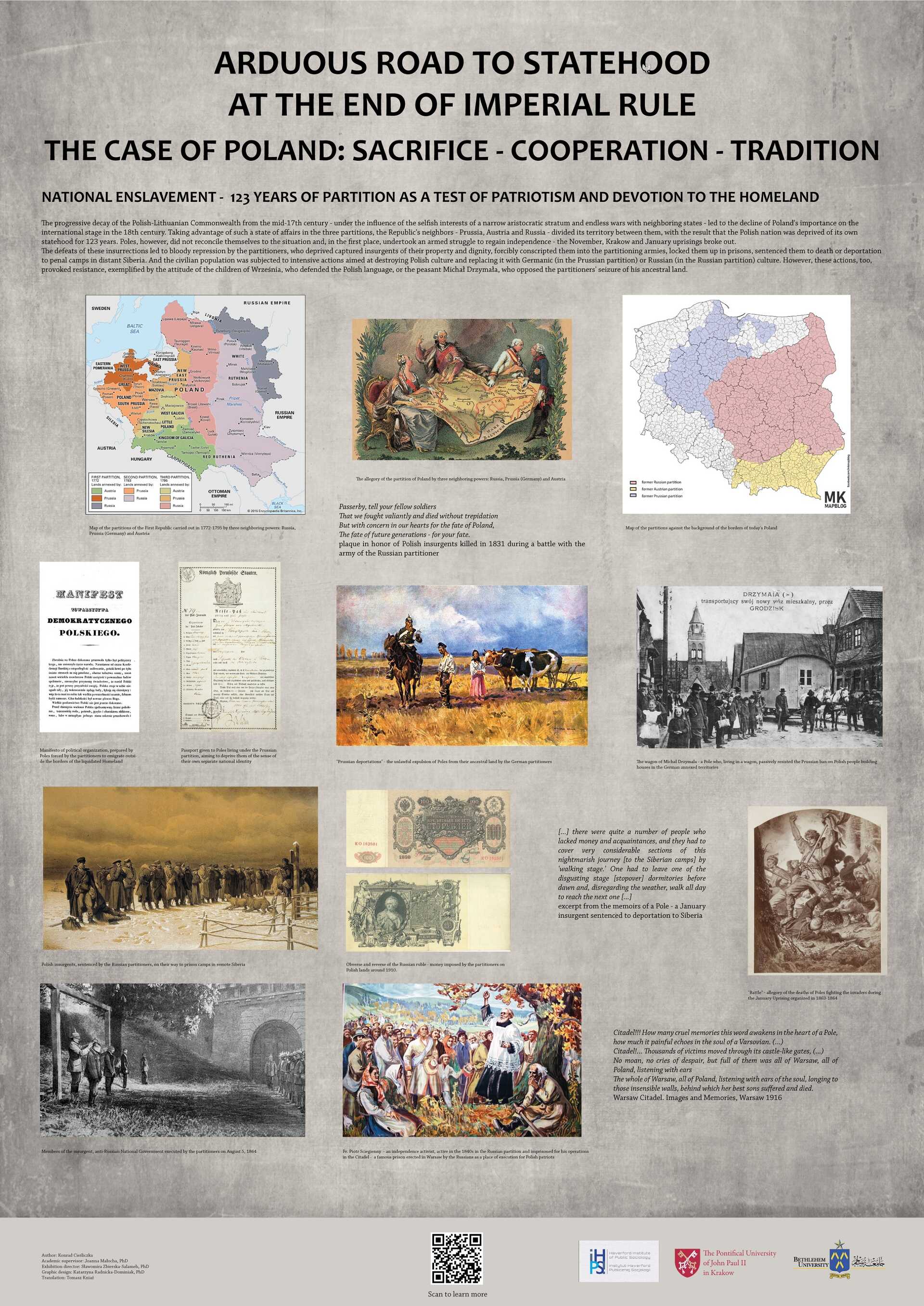I. National Enslavement

You can download the HQ PDF version of the poster HERE.
National Enslavement - 123 years of partition as a test of patriotism and devotion to the Homeland
The progressive decay of the Polish-Lithuanian Commonwealth from the mid-17th century - under the influence of the selfish interests of a narrow aristocratic stratum and endless wars with neighboring states - led to the decline of Poland's importance on the international stage in the 18th century. Taking advantage of such a state of affairs in the three partitions, the Republic's neighbors - Prussia, Austria and Russia - divided its territory between them, with the result that the Polish nation was deprived of its own statehood for 123 years. Poles, however, did not reconcile themselves to the situation and, in the first place, undertook an armed struggle to regain independence - the November, Krakow and January uprisings broke out.
The defeats of these insurrections led to bloody repression by the partitioners, who deprived captured insurgents of their property and dignity, forcibly conscripted them into the partitioning armies, locked them up in prisons, sentenced them to death or deportation to penal camps in distant Siberia. And the civilian population was subjected to intensive actions aimed at destroying Polish culture and replacing it with Germanic (in the Prussian partition) or Russian (in the Russian partition) culture. However, these actions, too, provoked resistance, exemplified by the attitude of the children of Września, who defended the Polish language, or the peasant Michał Drzymała, who opposed the partitioners' seizure of his ancestral land.



